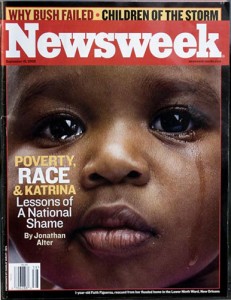Newsweek magazine to stop printing, go all-digital
 Newsweek, the venerable U.S. weekly current affairs magazine, will publish its final print edition on Dec. 31 and move to an all-digital format early next year, the latest example of how print media have had to adapt to changing reading habits.
Newsweek, the venerable U.S. weekly current affairs magazine, will publish its final print edition on Dec. 31 and move to an all-digital format early next year, the latest example of how print media have had to adapt to changing reading habits.
Magazines and newspapers have struggled as readers have gone online or to their tablets and e-readers to get their news.
“We are transitioning Newsweek, not saying goodbye to it,” two top executives of the magazine’s parent company said on Thursday.
The all-digital Newsweek will be called Newsweek Global and will be a single, worldwide edition, Tina Brown, editor-in-chief of Newsweek Daily Beast Co, and Baba Shetty, chief executive, wrote in a post on the Daily Beast website.
The decision to stop printing the 80-year-old magazine is “about the challenging economics of print publishing and distribution,” they said.
The transition to all-digital will entail job cuts, they said, but did not specify how many.
Daily Beast is an online news and culture site launched in 2008 by Brown, a former editors of the magazines The New Yorker, Vanity Fair and Talk. Newsweek was merged with the Daily Beast website in 2010.
In contrast to the Daily Beast website, which is free and advertising-supported, Newsweek Global will be subscription-based, with some content available on the Daily Beast, Brown and Shetty wrote.
Newsweek has been able to build a growing online audience, in part due to the popularity of devices such as Apple Inc’s iPad and e-readers from Amazon.com Inc and Barnes & Noble Inc.
That growth has led Newsweek to a “tipping point” where it is most effective to distribute the publication exclusively through digital means, Brown and Shetty wrote.
The Daily Beast gets more than 15 million unique visitors a month, up 70 percent from a year ago, with much of that growth generated by Newsweek, they said.
Industrywide, U.S. magazine advertising pages fell 8.8 percent in the first half of 2012, according to Publisher’s Information Bureau data. Newsweek fared better; its ad pages rose 7.6 percent during that period.
But Newsweek’s U.S. circulation has been in decline for years, falling from a one-time peak of around 3 million to about 1.5 million now.
Barry Diller, media veteran and CEO of IAC/InteractiveCorp , which has a controlling interest in Newsweek Daily Beast, said in July that he was contemplating making Newsweek available only online because of the cost of “manufacturing” a weekly.
Source: Channels




